Savings at the Pump: Financing Solar Irrigation to Support Rural Women
Limited access to affordable cost- and time-saving tools is a major constraint on rural women’s livelihoods. This was certainly true for Rebecca Ashinyo, a 42-year-old farmer from the Volta region in Ghana, who until recently relied on three aging, electric water pumps to irrigate her vegetable plots. Although the pumps allowed Rebecca to farm year-round, they regularly broke down and required frequent and expensive repairs. That all changed when she financed a new solar water pump, allowing her to save time and money spent on repairs and invest it in growing her vegetable trading business.
The cost of irrigation equipment and maintenance are major impediments to rural women’s productivity
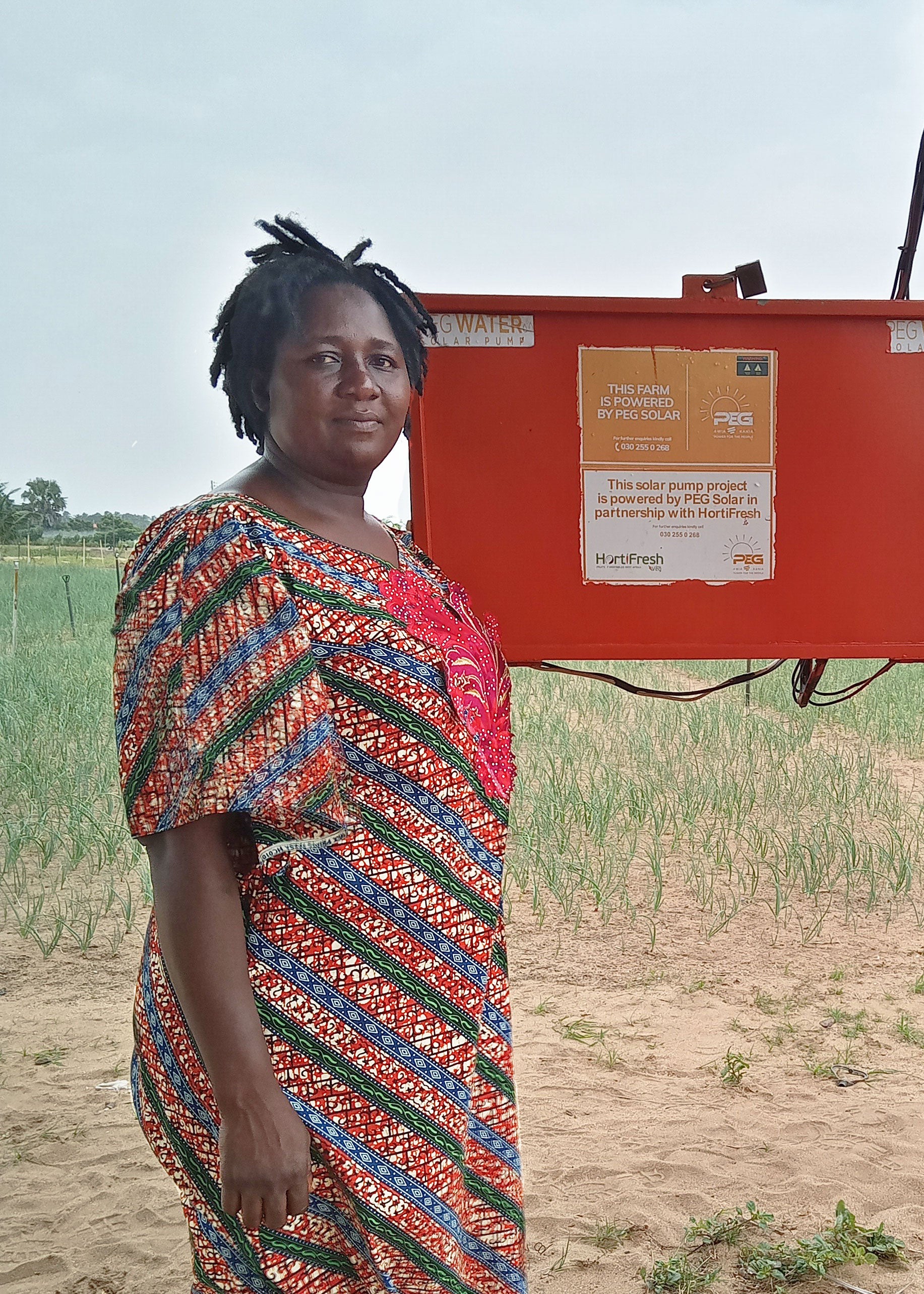
Faced with unequal access to productive resources like inputs and time-saving tools, female farmers in Sub-Saharan Africa have lower rates of agricultural productivity than their male counterparts.
Access to water pumps is one example where disparities in access to productive resources negatively impact women’s productivity. Irrigation is increasingly critical for rural women, not only because climate change is making rains less predictable, but also because water pumps can improve women’s livelihoods by allowing them to farm year-round. However, the electric and diesel fuel-powered pumps prevalent in rural markets are simply too expensive for many women to purchase, operate and repair.
Rural women already struggle with limited financial resources and competing demands on their time, such as unpaid household labor. Costly and unreliable pumps mean less time and money invested in their farms and businesses. For Rebecca, frequent breakdowns meant that she was forced to spend up to 20% of her daily productive time dealing with repairs for her electric pumps. Even when the pumps worked, the high cost of the electricity needed to power them would eat into her earnings from selling vegetables.
Solar water pumps offer greater reliability and lower costs over time, but they are out of reach for many rural women
Solar water pumps are increasingly touted as a more sustainable and lower cost solution for farmers. By converting sunlight into electricity to pump water, solar pumps present a clean, simple and energy-efficient alternative to traditional electric and fuel-driven pump sets. However, despite promising lower operating costs over time, these new systems come with a higher upfront cost that puts them out of reach for many rural women farmers.
In response, innovative asset finance companies across the African continent have introduced new financing products that can help farmers afford the transition to solar irrigation. By allowing customers who would otherwise be unable to purchase solar pumps spread the upfront cost over time, financing can unlock significant time and cost savings, especially for rural women.
Evidence shows that financing solar water pumps brings significant benefits for farmers. Between 2016 and 2018, Efficiency for Access partnered with 60 Decibels to survey 375 solar water pump financing customers in Uganda, Kenya and Tanzania about their experiences. Most survey respondents reported having higher incomes relative to their peers and saw their irrigation-related expenses decline by an average of 91% after adopting the new pumps (excluding the cost of financing). Customers also reported positive impacts on their agricultural yields and productivity since purchase, and the majority experienced improvements in their overall quality of life.
Leveraging finance to unlock women’s access to solar irrigation
One such asset finance company offering new solar irrigation financing plans is PEG Africa (PEG), a pay-as-you-go (PAYGo) provider in West Africa, operating in Ghana, Côte d’Ivoire, Senegal and Mali with over 700,000 daily users.
PEG first launched its solar water pump financing product in Ghana, where lack of awareness, availability, after-sales service and financing in rural areas has until recently prevented widespread adoption of this new technology. Importantly, PEG has prioritized addressing the constraints that prevent rural women like Rebecca from investing in solar water pumps, recognizing that women stand to benefit most from access to reliable and low-cost irrigation solutions.
In partnership with the SNV Hortifresh Project, PEG worked to heighten awareness of solar irrigated agriculture amongst Ghanaian farmers and reduce the cost of the equipment — an initiative that ultimately led Rebecca to inquire about financing.
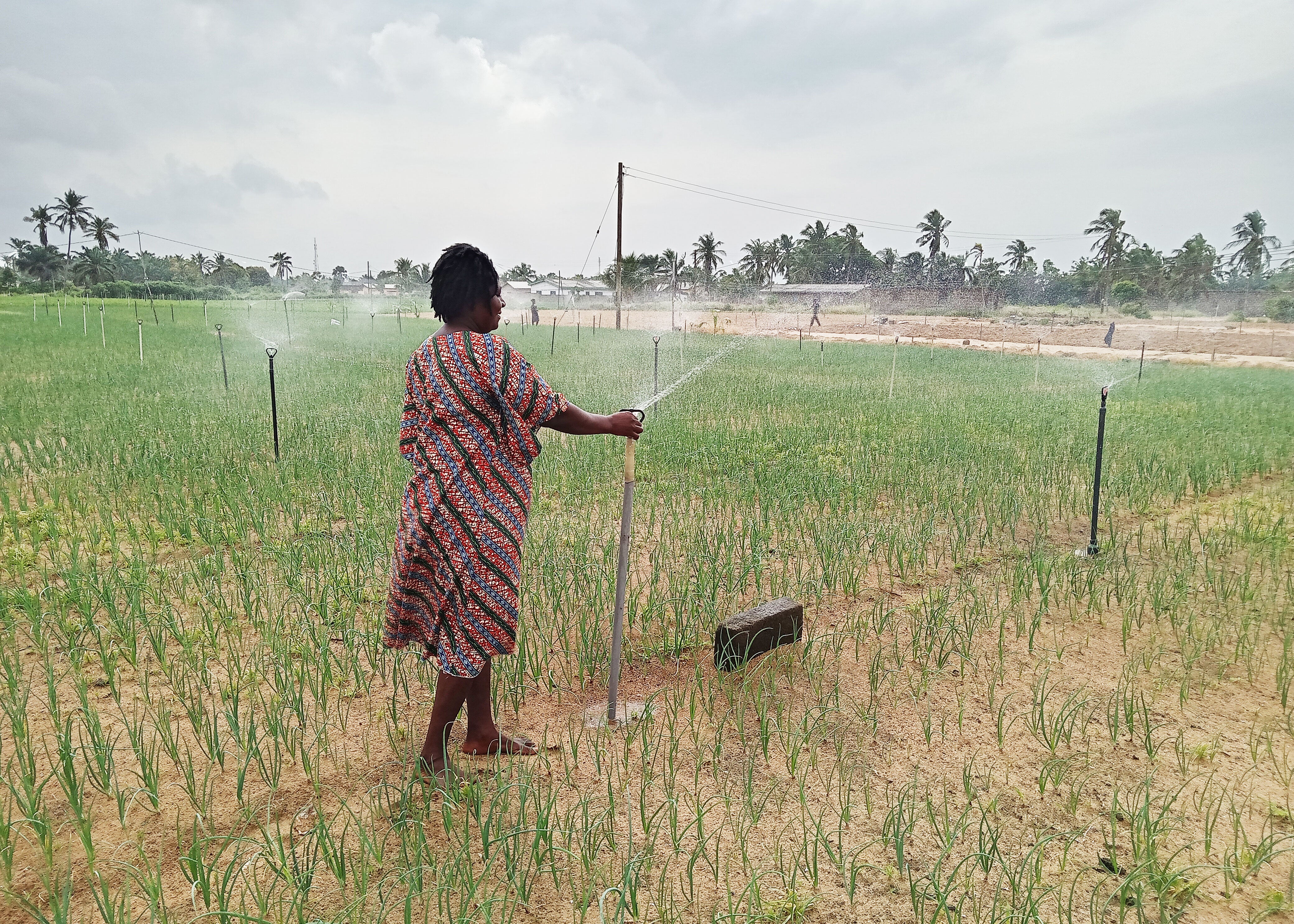
To reach rural women like Rebecca, PEG leverages women’s groups like village savings and loan associations (VSLAs) to disseminate information about the pumps and drive awareness. Additionally, PEG’s credit scorecard is designed to overcome traditional barriers to lending to women — both by incorporating alternatives to criteria that tend to discriminate against women (such as asset ownership) and by scoring female borrowers higher in recognition of their stronger repayment behavior relative to men.
The non-collateralized financing offered by PEG enables women to pay for the pump over a 17-month period, with flexible repayments that can be tailored to cropping cycles to allow for higher payments once the harvest is complete. The organization has also partnered with shops in peri-urban and rural locations across Ghana to stock its pumps to ensure that it can serve clients in high-potential but remote irrigation areas. PEG has staff located across the country who ensure timely installation of pumps and resolution of technical issues.
Financing products help women achieve higher productivity, incomes, and savings in terms of money, time and labor
As a result of cost, time and labor savings, 10 percent of the total number of clients representing women farmers who have financed water pumps from PEG report increased crop yields and higher incomes. As an added benefit, these women also saw improvements in household health owing to access to clean water and less exposure to pollution from fuel pump emissions.
Replacing her aging electric pumps provided Rebecca with significant time savings. Frequent breakdowns meant that she was forced to spend significant productive time dealing with repairs. In contrast, her new solar pump requires virtually no maintenance, allowing her to spend more time selling vegetables and supervising laborers on her farm. Another benefit is that the solar water pump (which is much easier to operate and maintain) can autonomously water up to 2 acres at a time, requiring less of her time and attention.
In addition to time savings, switching to solar has also led to important cost savings. With a more reliable pump, Rebecca is now able to save and invest the money that would have otherwise been spent on costly repairs. And because she now only uses her old electric pumps for night irrigation, Rebecca has reduced her electricity consumption by 25%.
"As a business woman, I am happy to be making income gains as a result of the cost and energy savings and will use this to invest in the farm and other off-farm viable businesses including the vegetable trading business," said Rebecca.

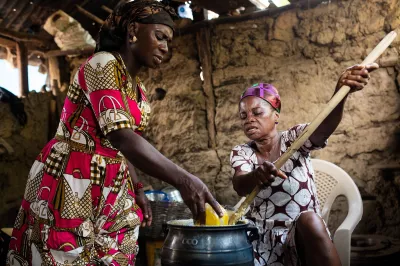
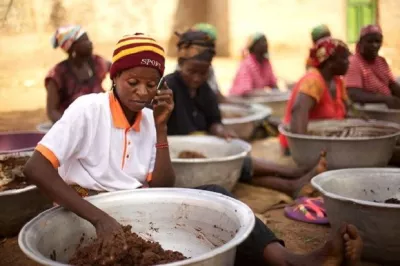
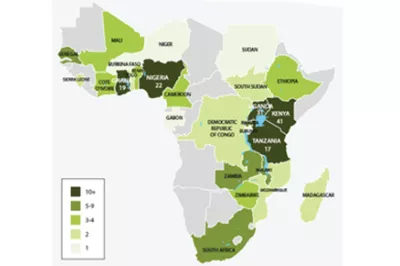
Add new comment